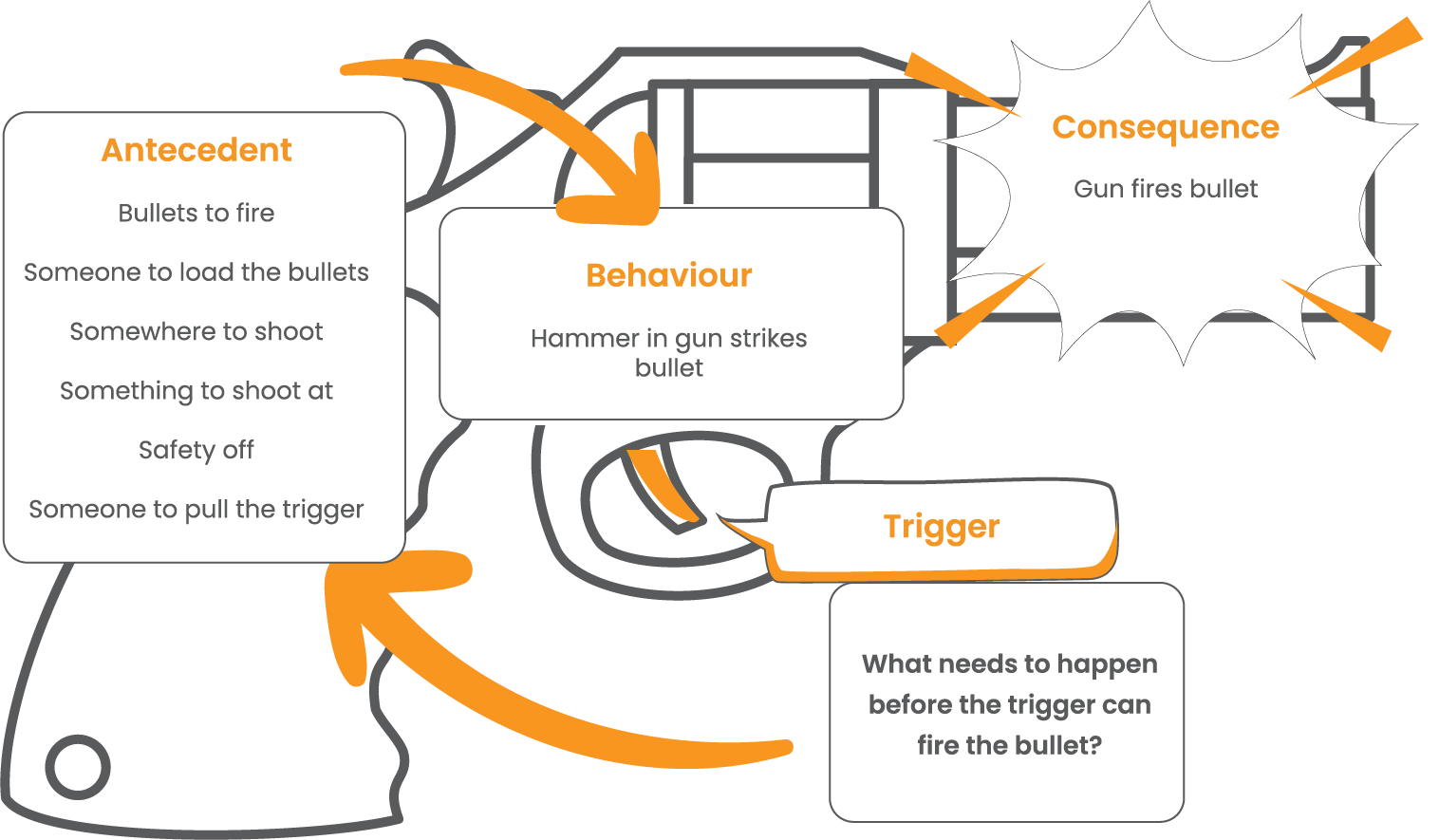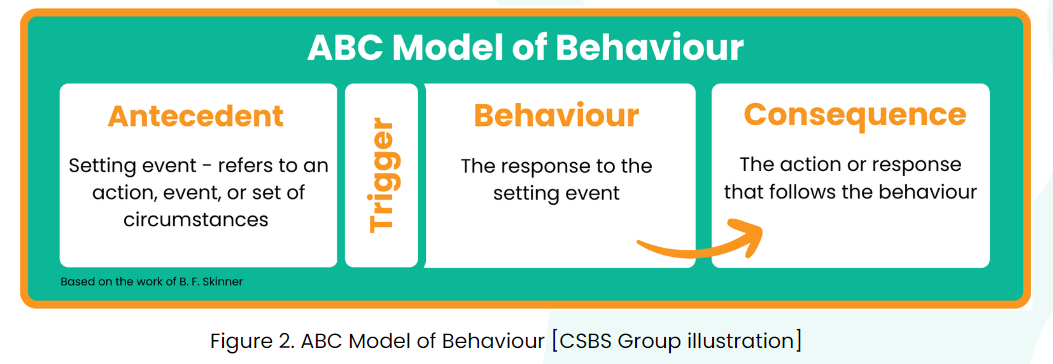What Triggers you?
An insight into behaviour triggers by our Positive Behaviour Support Specialist - Brett FitzsimmonsIn discussions regarding behaviour support, it’s common for the topic of ’triggers’ to arise. In fact, in my experience, it’s common for the topic to be the sole focus of the discussion.
I often hear support workers say that they must understand a person’s triggers, so that they can effectively respond to a person’s behaviour – like it’s the purpose of behaviour support to ’discover the truth’ about triggers, because, when we do, all will be revealed, and behaviour support will be achieved by the simple act of not ‘triggering’ the person. This is a simplistic and unrealistic analysis of behaviour supports.
Let me explain.
Triggers are indeed important in terms of understanding behaviours, however, there’s a lot more to supporting people to manage behaviours than merely knowing how to react to triggers.
A trigger to a certain behaviour will depend upon a number of interconnecting and dependent factors; and to fully understand their story, we must be able to clearly define all the factors.
Firstly, let’s define a trigger.
We know that a trigger will usually occur before the behaviour happens. It could be a word, a phrase, an action, a person’s presence, or a place – whatever it is, the trigger is the last thing that happens in a series of events that causes the behaviour.
If we use the trigger on a gun as an analogy, (Figure 1), we can easily list all the actions that need to happen for the trigger to fire the bullet from the gun. It is a fact that the trigger will not fire the bullet without having at least some of the actions in place.

Here I used the trigger on a gun analogy to illustrate the widely used behavioural framework of the ABC model – this framework is used for clarifying how factors interconnect with each other to influence behaviour.
So, just like pulling the trigger has a sequence of events that must happen for the trigger to be pulled and the gun to be fired, so too does behaviour, albeit the events that can lead to behaviours are infinitely more difficult to read and understand.
Using a more conventional version of the ABC model (Figure 2), we can see that the trigger occurs at the very end of a list of conditions (Antecedent), these are the setting events that set the scene for the behaviour to happen.
Pulling the trigger without these setting events being in place means the gun will not fire, or, the behaviour will not happen.

In this scenario, let’s look at the analogy from a behaviour support perspective.
David is a 24-year-old man with a diagnosis of Autism and Intellectual Disability. David has just finished his Thursday morning activity, sailing with Sailability. It’s been a particularly hot Thursday, and David has drunk 2-litres of water while he was out sailing on the bay. When David returned to shore, his support worker Michael, helped him go to the toilet twice.
As Michael and David were leaving, David asked if he could use the toilet again. As they were on a tight schedule, Michael asked David, “do you think you can wait until we get home?” – to which David nodded in agreement.
David sat in the back seat (as he prefers to do) on the way home. As the air con was not strong enough to make it to the back seat, David put the window down, but the breeze coming in was hot and unpleasant, so David was hot and uncomfortable. As they got closer to home, David needed to use the toilet with increasing urgency, so when they passed a petrol station David asked if they could stop to use the toilet. As they were close to home, Michael said, “we’re almost home, can you wait?”.
David reached over and slapped Michael on the shoulder twice while he was driving.
What is the behaviour in this scenario?
The behaviour is that David slapped Michael on the shoulder twice.
What is the trigger in this scenario?
What are the setting events?
So how can an understanding of a person’s triggers be helpful?
The triggers that cause behaviours must be understood in the context of setting events, and other important antecedent factors (e.g. a person’s medical history / diagnosis). So focusing just on avoiding triggers, is not an effective approach to behaviour support.
If Michael was aware that the setting events had ‘loaded the gun’ for David, he may have given a different response, and in doing so, avoided triggering the behaviour.
Defining our role in supporting positive behaviours
A key part of supporting people is understanding the many and varied actions that might contribute to a setting event (Antecedent), and how a person’s physical and or intellectual impairments might interact within their environment.
It is the aim of effective behaviour support to reduce the impact of that interaction, which in turn, will reduce the antecedents that are likely to build up for a person over time.
Reflective practice
It is impossible to fully understand or support a person without reflecting on your practice – that is, thinking about what is happening around you, what you are doing or how you’re reacting in a person’s environment, and modifying your behaviour or practice as you learn more about a person’s likes and dislikes, wants and needs.
There’s certainly more to unwrap under reflective practice, and I will talk more on that, and the simple ways you can add reflection into your daily support routine in my next blog post.
Brett Fitzsimmons
CSBS – Behaviour Support Practitioner
Let’s talk about how we can be part of your story.
Supports we offer
Why choose CSBS
CSBS Connect – Access support information in real time.
CSBS is a NDIS Registered Provider – what that means for you.
About CSBS
Registered NDIS Provider No: 4050093808 - Complex Supports Bespoke Solutions
Contact Us
Level 1, 673-679 David Low Way, Mudjimba, QLD 4654
1300 18 11 88
